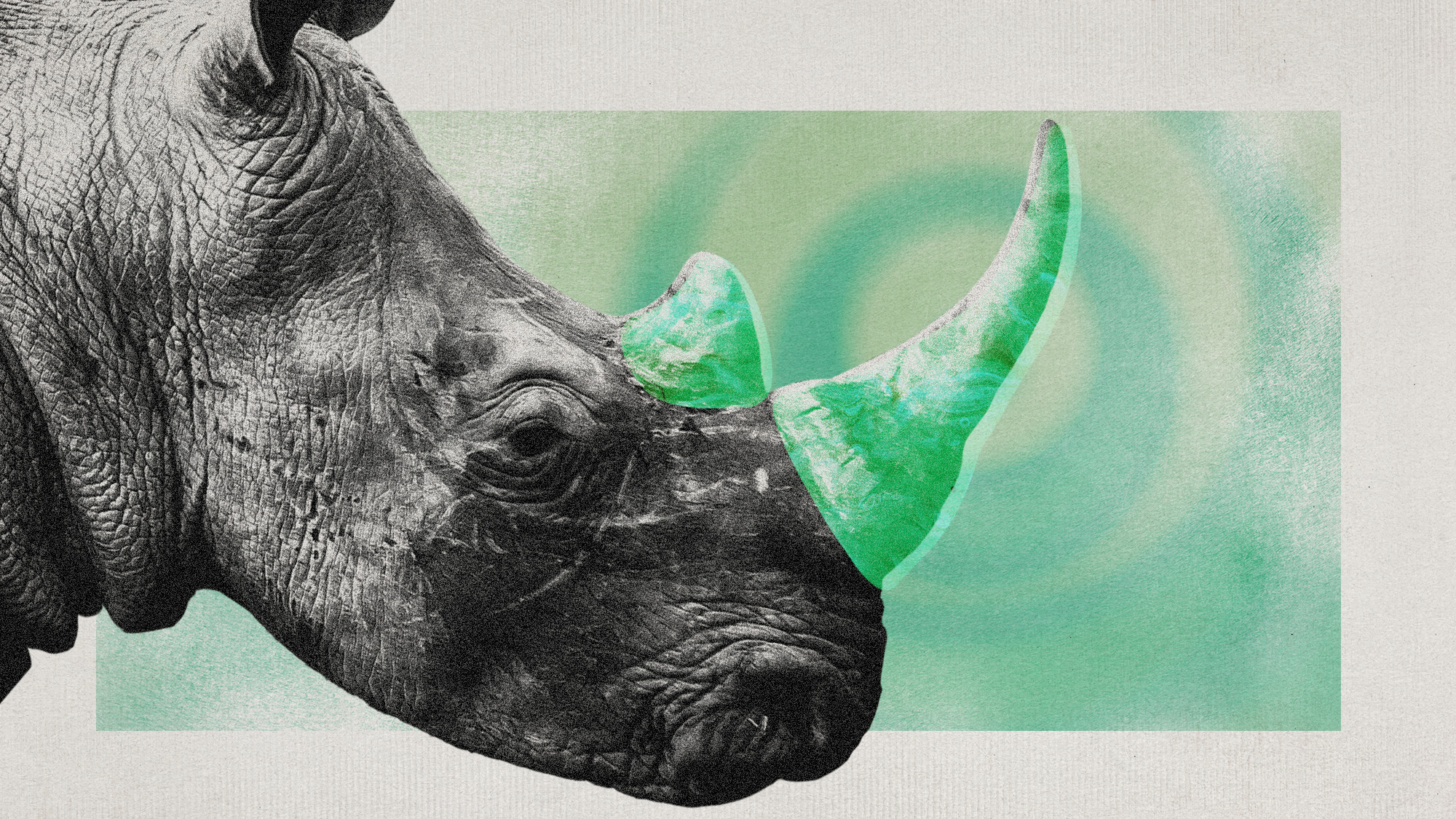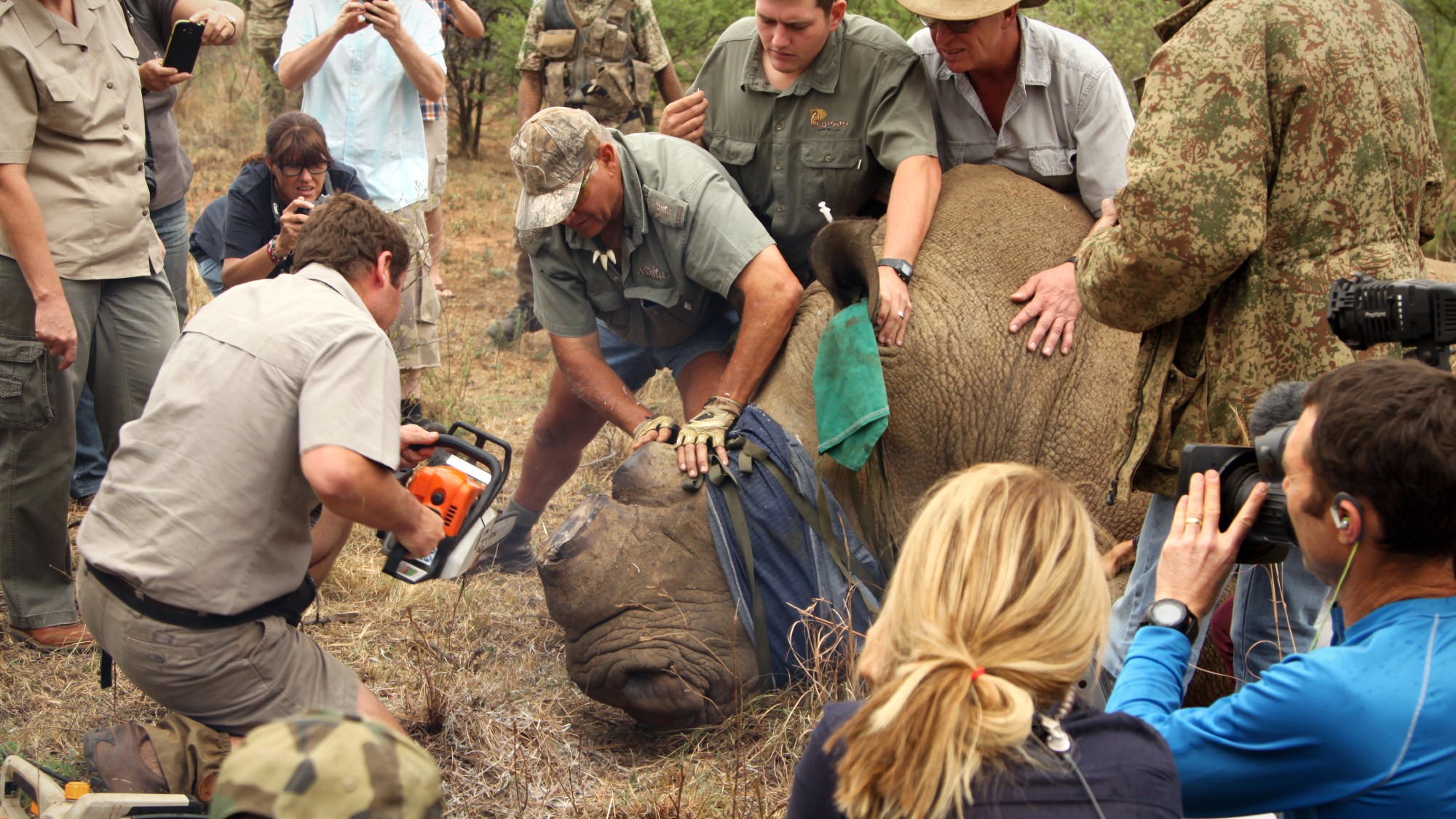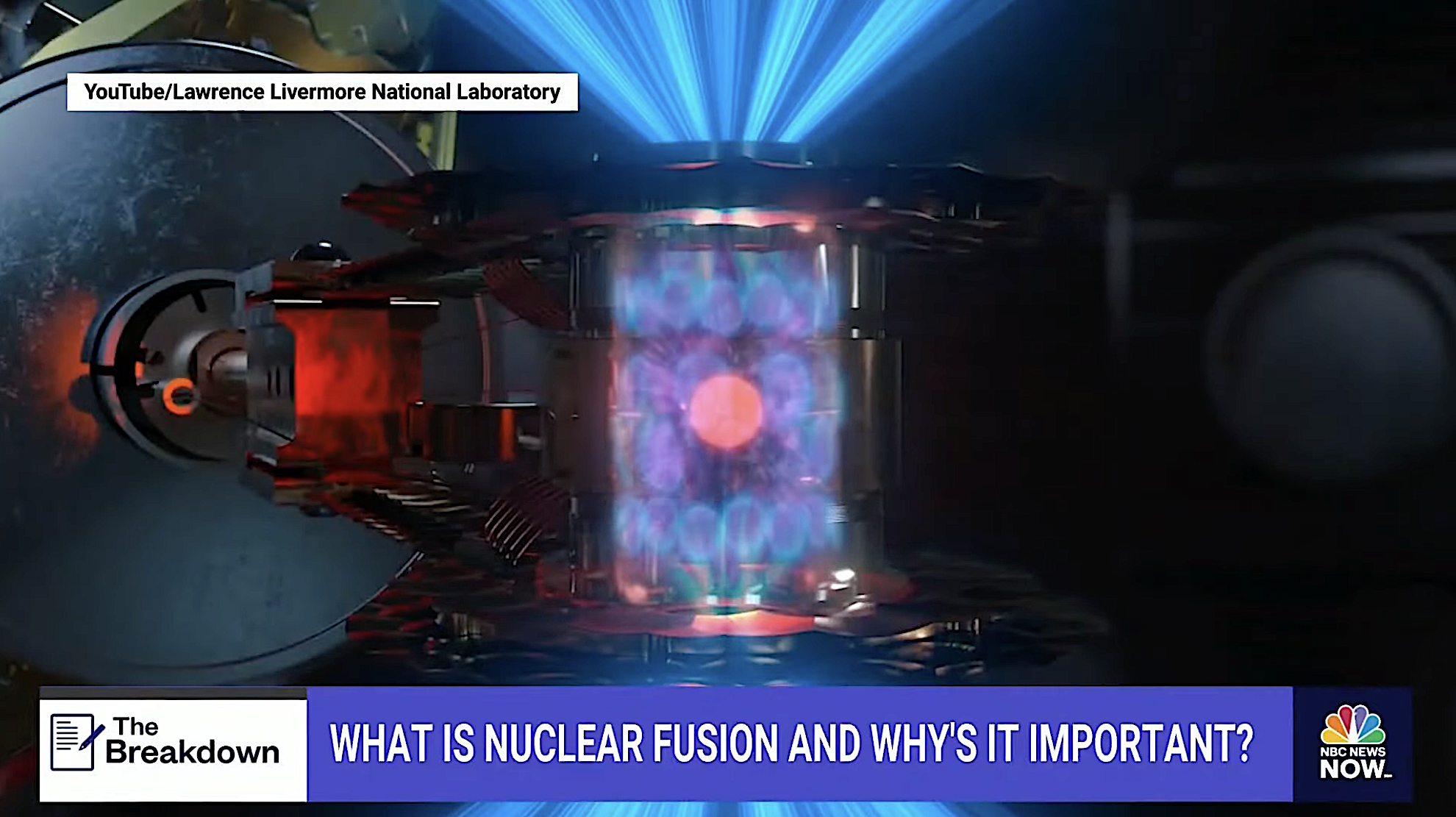How radioactive rhinos may prevent poaching
Injecting radioactive material will make horns harder to smuggle internationally

A free daily email with the biggest news stories of the day – and the best features from TheWeek.com
You are now subscribed
Your newsletter sign-up was successful
Every 20 hours in South Africa a rhino is killed for its horn and experts are turning to nuclear technology to try and stop this bloodshed.
Rhino horns are poached for use around the world in traditional medicines or as status symbols, so South African scientists are implanting radioactive material in the animals' horns to make them poisonous and prevent smuggling.
Nuclear Beckham
Last month, scientists from Wits University, Johannesburg, injected radioisotopes, atoms that have excess nuclear energy, into the horns of 20 rhinos on a reserve in South Africa.
The Week
Escape your echo chamber. Get the facts behind the news, plus analysis from multiple perspectives.

Sign up for The Week's Free Newsletters
From our morning news briefing to a weekly Good News Newsletter, get the best of The Week delivered directly to your inbox.
From our morning news briefing to a weekly Good News Newsletter, get the best of The Week delivered directly to your inbox.
Among the first rhinos to have the injection were Beckham, Mapimpi and Duane, who are named after the English football star and two Springbok rugby players.
It's hoped that the radioactive material will make their horns harder to smuggle internationally, as they would set off radiation detectors installed at land border crossings, ports and airports to prevent nuclear terrorism.
The injected material should also "render the horn useless… essentially poisonous for human consumption", Nithaya Chetty, professor and dean of science at the University of the Witwatersrand in Johannesburg, told Agence France-Presse.
Experts insisted the radioisotopes do not harm the rhinos, who were sedated and unaware while the material was injected into their horns, making it an "elegant solution to a very real problem", said Futurism.
A free daily email with the biggest news stories of the day – and the best features from TheWeek.com
Golden prices
Poaching is a "significant problem" in South Africa, which is home to the world's biggest rhino population, said The Times. Almost 500 rhinos were killed last year, according to government data.
The death toll reflects the demand for the use of rhino horns in traditional medicine. On the black market they are worth more by weight than gold or cocaine, with the highest demand in China and Vietnam.
Past efforts to tackle this problem included poisoning or painting the horns. Conservationists have even resorted to dehorning rhinos themselves to try and keep them safe from poachers.
Like a "well-oiled machine", said Discover, field rangers, vets, researchers and a helicopter pilot would team up to find and tranquilise a rhino. Then they would cover its eyes and ears and cut off the horn with a chainsaw a few inches from the base.
Naturally, that process proved controversial. "We get a lot of criticism for cutting with a chainsaw," said rhino conservation specialist Vanessa Duthé, "but it's the best way, the fastest way" to dehorn.
Meanwhile, the numbers show the scale of the problem. Rhino killings were up 11% in 2023 and there are just over 26,000 rhinos left in the world.
If the radioisotopes experiment is successful, over time the scientists hope to expand their work for the benefit of other endangered animals, such as elephants and pangolins.
Chas Newkey-Burden has been part of The Week Digital team for more than a decade and a journalist for 25 years, starting out on the irreverent football weekly 90 Minutes, before moving to lifestyle magazines Loaded and Attitude. He was a columnist for The Big Issue and landed a world exclusive with David Beckham that became the weekly magazine’s bestselling issue. He now writes regularly for The Guardian, The Telegraph, The Independent, Metro, FourFourTwo and the i new site. He is also the author of a number of non-fiction books.
-
 Local elections 2026: where are they and who is expected to win?
Local elections 2026: where are they and who is expected to win?The Explainer Labour is braced for heavy losses and U-turn on postponing some council elections hasn’t helped the party’s prospects
-
 6 of the world’s most accessible destinations
6 of the world’s most accessible destinationsThe Week Recommends Experience all of Berlin, Singapore and Sydney
-
 How the FCC’s ‘equal time’ rule works
How the FCC’s ‘equal time’ rule worksIn the Spotlight The law is at the heart of the Colbert-CBS conflict
-
 Why scientists are attempting nuclear fusion
Why scientists are attempting nuclear fusionThe Explainer Harnessing the reaction that powers the stars could offer a potentially unlimited source of carbon-free energy, and the race is hotting up
-
 Why does the US want to put nuclear reactors on the moon?
Why does the US want to put nuclear reactors on the moon?Today's Big Question The plans come as NASA is facing significant budget cuts
-
 New York plans first nuclear plant in 36 years
New York plans first nuclear plant in 36 yearsSpeed Read The plant, to be constructed somewhere in upstate New York, will produce enough energy to power a million homes
-
 Dehorning rhinos sharply cuts poaching, study finds
Dehorning rhinos sharply cuts poaching, study findsSpeed Read The painless procedure may be an effective way to reduce the widespread poaching of rhinoceroses
-
 Cautious optimism surrounds plans for the world's first nuclear fusion power plant
Cautious optimism surrounds plans for the world's first nuclear fusion power plantTalking Point Some in the industry feel that the plant will face many challenges
-
 Japan's controversial decision to release radioactive wastewater into the Pacific
Japan's controversial decision to release radioactive wastewater into the PacificSpeed Read Japan plans to dump nuclear wastewater into the ocean with the disapproval of many
-
 The science behind nuclear weapons
The science behind nuclear weaponsSpeed Read What makes them so deadly?
-
 Here's what the U.S. achieved with nuclear fusion and why it matters
Here's what the U.S. achieved with nuclear fusion and why it mattersSpeed Read